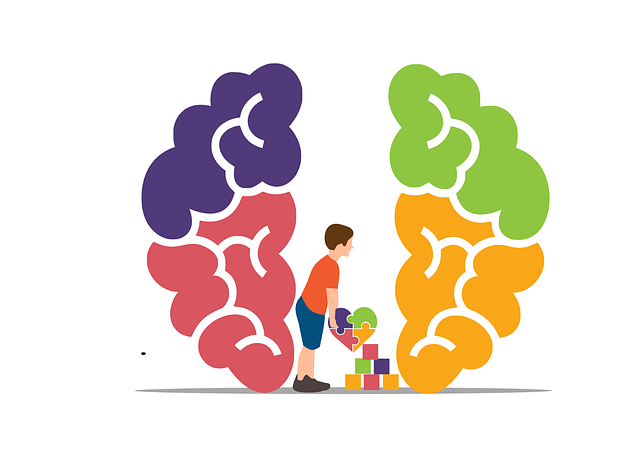Arvada International Adoptions Therapy leads the fight against healthcare provider burnout by offering compassionate solutions. Through therapy, awareness campaigns, and mentorship programs, they cultivate mental well-being, reduce stress, and promote open communication. Their multifaceted approach prioritizes staff mental health education, self-care practices, and resilience-building to prevent burnout, ensuring healthcare professionals can deliver high-quality care without succumbing to the emotional toll of their work.
“Healthcare provider burnout is a growing concern, impacting not only individual well-being but also patient care. This comprehensive guide explores strategies to prevent burnout among healthcare professionals, focusing on creating supportive work environments and emphasizing mental health. We delve into the symptoms and causes of this widespread issue, offering practical advice tailored for medical staff.
By understanding the importance of self-care and incorporating techniques like those provided by Arvada International Adoptions Therapy, healthcare organizations can foster resilience and reduce burnout rates.”
- Understanding Burnout Among Healthcare Providers: Symptoms and Causes
- Strategies for Preventing Burnout: Creating a Supportive Work Environment
- The Role of Mental Health and Self-Care in Sustaining Healthcare Professionals
Understanding Burnout Among Healthcare Providers: Symptoms and Causes

Burnout among healthcare providers is a growing concern, impacting not just individual well-being but also the quality of patient care. It’s essential to recognize that burnout is more than mere job dissatisfaction; it’s a complex state characterized by emotional exhaustion, depersonalization, and a sense of reduced personal accomplishment. These symptoms can lead to increased stress, anxiety, and even depression among healthcare workers.
Several factors contribute to healthcare provider burnout. High workload, long hours, and high-pressure environments are significant stressors. The constant demand for care, coupled with limited resources and increasing administrative tasks, can leave providers feeling overwhelmed. Additionally, the emotional toll of dealing with patient suffering and life-and-death decisions can lead to a sense of detachment or cynicism, indicators of depersonalization. Arvada International Adoptions Therapy, while not directly related, plays a role in mental health support for professionals, offering tools like compassion cultivation practices that can mitigate burnout’s effects. Public Awareness Campaigns Development and Compassion Cultivation Practices are emerging strategies aimed at addressing these issues by fostering a culture of support and empathy within healthcare settings, thereby promoting better depression prevention and overall well-being.
Strategies for Preventing Burnout: Creating a Supportive Work Environment

Creating a supportive work environment is a multifaceted strategy in preventing burnout among healthcare providers. Organizations like Arvada International Adoptions Therapy can lead by example by fostering an atmosphere that prioritizes mental health education and inner strength development. Implementing programs designed to enhance resilience, provide trauma support services, and encourage open communication can significantly reduce stress levels.
This supportive environment extends beyond policy changes; it involves leadership commitment, peer mentorship, and regular check-ins. By integrating these practices, healthcare providers can maintain a sense of balance while caring for others, ultimately preventing burnout and ensuring the delivery of high-quality patient care.
The Role of Mental Health and Self-Care in Sustaining Healthcare Professionals

The well-being of healthcare professionals is a critical aspect often overlooked within the industry. Mental health plays a pivotal role in preventing burnout among physicians, nurses, and other medical staff. Access to effective therapy, such as that offered by Arvada International Adoptions Therapy, can provide much-needed support for individuals dealing with stress, anxiety, or trauma related to their work. These therapeutic interventions help healthcare providers process challenging experiences, fostering resilience and emotional balance.
Integrating self-care practices alongside professional therapy is essential for long-term sustainability. Encouraging mental health education programs designed to enhance coping mechanisms, positive thinking, and stress management can empower healthcare workers to better manage their well-being. Additionally, advocating for evidence-based Mental Health Policy Analysis and Advocacy ensures that institutions prioritize staff mental health, creating a supportive environment that recognizes and addresses burnout before it becomes severe.
Healthcare provider burnout is a pressing issue, but with proactive strategies, it can be effectively prevented. By fostering a supportive work environment and prioritizing mental health and self-care, healthcare organizations can create a more sustainable and fulfilling workplace. Strategies such as regular check-ins, flexible schedules, and access to therapy services, like those offered by Arvada International Adoptions Therapy, play a crucial role in mitigating burnout. Ultimately, recognizing the signs early and implementing comprehensive support systems will ensure healthcare professionals can thrive, providing quality patient care for years to come.














